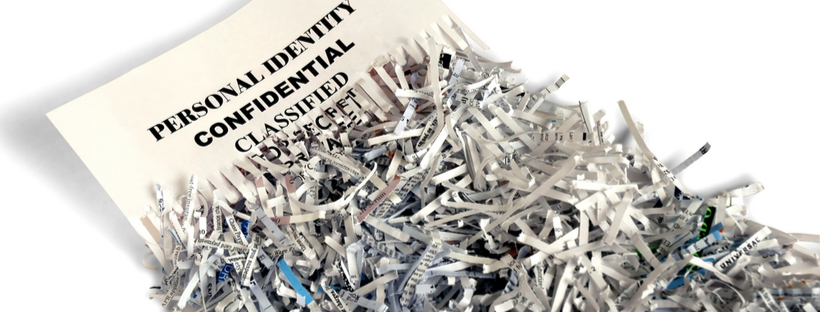
Old Documentation? Just Shred It!
The promise of a paperless society has fallen short, if you think of all the paper clutter that builds up in many households. When that paper pile grows too big, the urge to purge frequently results in documents with important information ending up in the curbside garbage bin. That’s a big mistake because dumpster diving is akin to mining gold for identity thieves. Instead of dumping documents and files no longer needed into the household trash, consider shredding documents to protect your most important private data.
To view the full article please register below:
Old Documentation? Just Shred It!
The promise of a paperless society has fallen short, if you think of all the paper clutter that builds up in many households. When that paper pile grows too big, the urge to purge frequently results in documents with important information ending up in the curbside garbage bin. That’s a big mistake because dumpster diving is akin to mining gold for identity thieves. Instead of dumping documents and files no longer needed into the household trash, consider shredding documents to protect your most important private data.
What Should I Shred?
Individuals should look to shred all unneeded documents that include account numbers, birth dates, passwords and PINs, signatures and Social Security numbers.
Of course, paperwork—such as tax records, pay stubs, bank statements, credit card statements, medical records, insurance records, bills and home purchase documents—often need to be retained for possible future reference (e.g., keeping tax filings for up to seven years).
Nevertheless, many of these old records need not be held indefinitely. How long one should hold them is up to the individual; maybe one year for credit card statements and two years for medical records, for instance.
The list of shredding candidates, however, is much longer. Examples include:
- Canceled or voided checks
- Airline boarding passes (embedded with a surprising amount of personal data)
- Credit reports
- Pre-approved credit card applications
- Convenience checks received from a credit card company
- Junk mail
- Old IDs (e.g., driver’s license, passport)
- Shipping labels and inserts
Where to Shred
Individuals will want to carefully consider where they choose to shred their documents. Not all shredding service providers are created equal. The last thing you want to do is bring all these data sensitive documents to a shredding service that is lax in its privacy protection commitment.
Consider a shredder that is name and address identification (NAID) certified, which means that the shredder follows strict protocols around the secure disposition of a range of media.
If there is no NAID certified shredder near you, ask if you can watch the shredding take place. By observing the actual shredding, you can return home with the confidence that your old files and documents were safely destroyed.
Next Steps
While you may want to consider a personal shredder to keep current with document destruction going forward, a better long-term solution may be to undertake the exercise of contacting your bank, financial advisor, credit card company and/or utility companies to sign-up for e-delivery of statements and bills to avoid creating a paper trail that heightens the risk of identity theft.
Please reference disclosures: https://blog-dev.americanportfolios.com/disclosures/











